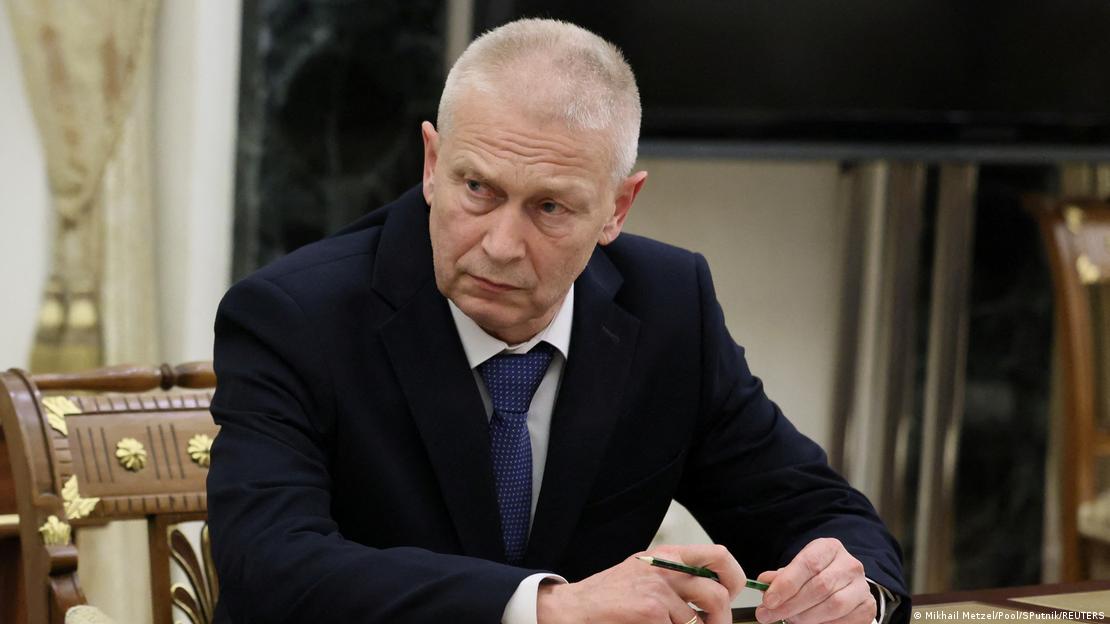Andrei Troshev is to form “volunteer units” for the war, under the command of the Defense Ministry. The mercenary group had been out of action since the attempted mutiny and death of former leader Yevgeny Prigozhin.
(DW) Russian President Vladmir Putin has appointed one of the Wagner group’s top commanders to lead the so-called “volunteer units” that will join the fighting in the war in Ukraine.
The nominee is Andrei Troshev, who became one of the top leaders of the Russian mercenary group after the death of commander Yevgeny Prigozhin. His choice is seen as a sign of Russia’s continued use of the Wagner group in the war being waged in the neighboring country.
According to statements released by the Kremlin on Friday (29/09), Putin told Troshev that his task is “to deal with the formation of volunteer units that will be able to carry out various combat tasks, primarily in the zone of the special military operation” – the term used by the Russian government to describe its war of aggression in Ukraine.
Under the Ministry of Defense
The fact that Russian Deputy Defense Minister Yunus-Bek Yevkurov was also present at the meeting with Putin and Troshev in the Kremlin signals that the Wagner group will be under the command of the Ministry of Defense.
The meeting seems to reflect Russia’s intention to send part of the group back to the battlefronts in Ukraine, even after the mercenaries’ mutiny in June and Prigozhin’s death in a plane crash under mysterious circumstances.
The Wagner group is seen by the Kremlin as a valuable resource, although the fighters have not played a significant role in the war since the capture of the Ukrainian town of Bakhmut, in the longest and bloodiest battle of the conflict.
At the height of its activities on several continents, Wagner counted tens of thousands of fighters. At least 50,000 convicted criminals agreed to fight for the group in Ukraine in exchange for their freedom. The group also has tens of thousands of volunteers, including many former members of the special forces.
The fighters are well paid and, as Prigozhin claimed, the chain of command acts responsibly and without the bureaucracy of the Russian Armed Forces.
Pact with the Kremlin
The mercenaries’ brief rebellion on July 23 and 24 was aimed at overthrowing the leadership of the Ministry of Defense, which Prigozhin blamed for mistakes in coordinating the war in Ukraine and for trying to control the Wagner group. His commanders seized the Russian military base in Rostov-on-Don and left for Moscow, before abruptly ending the mutiny.
Although Putin considered them “traitors”, the Kremlin quickly negotiated a deal to end the rebellion in exchange for an amnesty, preventing the mercenaries from being brought to justice for the mutiny. They were offered three options: retire, move to Belarus or sign new contracts with the Defense Ministry.
Em julho, o presidente russo afirmou que, cinco dias após o motim, ele se reuniu com 35 comandantes do grupo, inclusive Prigozhin, e sugeriu que continuassem a servir sob o comando de Troschev – de codinome “Cabelo Grisalho”. A oferta foi rejeitada pelo então líder maior do grupo.
Troshev é um militar aposentado que teve papel de liderança no grupo Wagner desde sua criação, em 2014, e se tornou alvo de sanções europeias por sua atuação na Síria como diretor executivo do grupo de mercenários.
In July, the Russian president claimed that, five days after the mutiny, he met with 35 commanders of the group, including Prigozhin, and suggested that they continue to serve under Troschev – codenamed “Gray Hair”. The offer was rejected by the then top leader of the group.
Troshev is a retired military officer who has had a leading role in the Wagner group since its creation in 2014, and became the target of European sanctions for his role in Syria as the mercenary group’s executive director.
